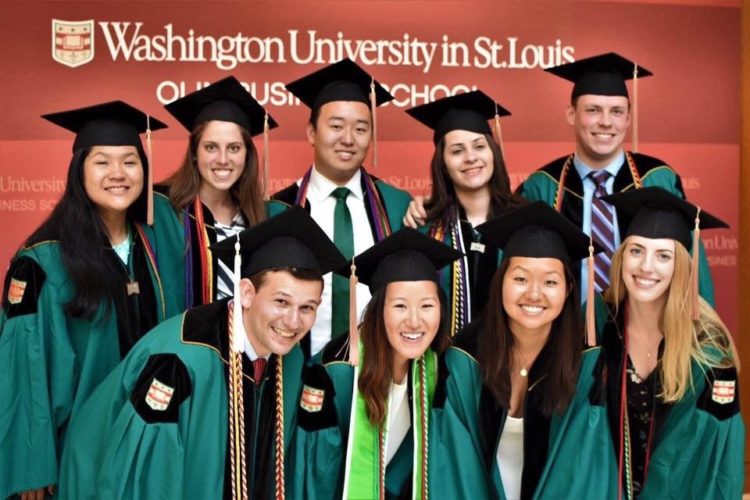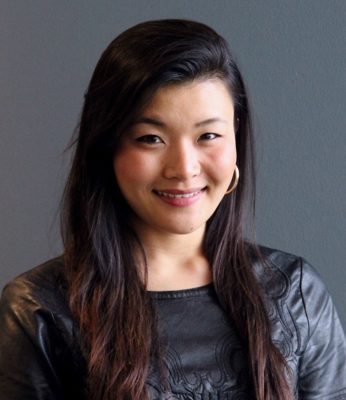Max Liu, BSBA ’95, wants to make financial services more accessible, while accelerating financial inclusion for the unbanked population in Asia. Toward that end, the Hong Kong-based entrepreneur cofounded and runs EMQ, a financial technology innovator that is building a financial network across Asia with a focus on remittance.
The company just closed a $6.5 million round of funding last month. Liu founded EMQ in 2014 to offer cross-border remittance services between two countries at a fraction of the price of conventional banks, providing secure and affordable money transfer options for businesses and individuals.
Olin’s Nancy Barter, senior director of development, caught up with Liu a few months after he met Dean Mark Taylor during a visit to Hong Kong.
Tell us more about the work you’ve done at EMQ.
We developed our entire business from a compliance and regulatory perspective by partnering with banks and established payment partners. We also spent years to make sure our networks are fully compliant end to end, and that we abide by all rules and regulations in every country we operate in.
Today, we have established a resilient and regulatory-approved remittance network with an extensive last-mile distribution footprint across North and Southeast Asia.
We also have built a strong partner ecosystem of financial institutions, digital wallets, telecom companies, and traditional money transfer providers (cash pick-up), amassing thousands of distribution points across North and Southeast Asia.
How did your Olin education affect your career?
Olin is a welcoming community. Relationships between the student body and faculty are very unique.
Faculty members are committed to our education and future. They always encourage us to think hard, ask the big questions, find inspiration—and our passion.
We can actively engage with professors, dig deep into specialty areas, customize coursework with electives, immerse ourselves in global programs, and collaborate with organizations of all types and sizes. It creates a great platform for our future career.
What course or faculty member influenced you most?
Every single person I have met at Olin has influenced my education in some way or another, but the diverse and supportive community—a unique blend of cultures and beliefs—had a profound impact on me.
I found thought leaders, world-class faculty, and global alumni passionately sharing their advantages with me. I learned a lot of business knowledge and gained valuable hands-on experience through my engagements.
Was there a “defining moment” in your WashU experience?
I was a part of Olin’s Association of Collegiate Entrepreneurs, which provided me with the resources and networking opportunities necessary to foster entrepreneurship. I learned from aspiring entrepreneurs at Olin and attended conferences across the United States and Asia.
My trip to Beijing in 1992 to meet entrepreneurs and businessmen across different industries taught me to creatively solve problems—and adapt to change and people from all different backgrounds and perspectives—to reach my goal.
How would you counsel today’s Olin students to focus their education and career-building efforts?
As an entrepreneur running EMQ, passion is very important to me. The things I was most passionate about were being able to see a problem and figuring out a way to solve it by making financial services more accessible to businesses and individuals.
When times get tough—which they always do in the startup environment—it was my passion that drove me and helped me persist.
When we are passionate about something, we work harder, we get more creative, we search more diligently for solutions. When difficult problems arise, we inspire others who work alongside us.
How do you stay engaged with Olin and Washington University?
Olin and Washington University maintain an exceptionally close bond with the university and the alumni. Whenever people from Olin and Washington University take a trip through the Asia Pacific region, I always get an email inviting me to attend an event—or, sometimes, have a deep-dive conversation with a faculty member, as I did with Dean Mark Taylor’s recent visit to Hong Kong.
During my recent breakfast meeting with Dean Taylor, we spoke about the fintech ecosystem in Asia and ways we can provide more opportunities for the students at Olin and Washington University.
Following this breakfast, I was connected to Cliff Holenkamp, who runs Olin’s entrepreneurship program and has a passion for building businesses and laying the proper foundation to groom future entrepreneurs. I was also connected to Greg Hutchings of Olin’s Weston Career Center to connect the companies in Asia to the talent pool at Olin.
As an entrepreneur myself, I believe in the power of entrepreneurship; it’s great to share my stories of triumphs and challenges to give insightful vision to the next generation of students and entrepreneurs and continue to inspire and motivate them to reach their goals.








 For example, CITYTREK focuses on exploring local events and hidden gems in the city while Beef And A Toast, held in partnership with Venture Cafe, focuses on discussing “beef” (issues) within St. Louis and toasting to being part of the solution.
For example, CITYTREK focuses on exploring local events and hidden gems in the city while Beef And A Toast, held in partnership with Venture Cafe, focuses on discussing “beef” (issues) within St. Louis and toasting to being part of the solution.
